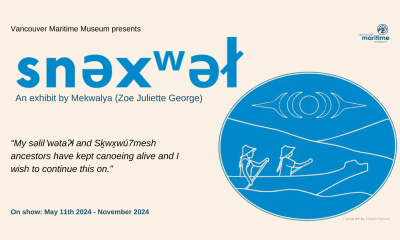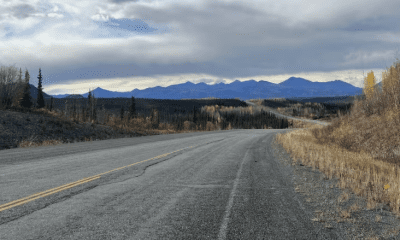Breaking
What will Trump want from Canada on NAFTA? A US federal document may offer clues

What will Trump want from Canada on NAFTA (Pictured) transition team at the Environmental Protection Agency said Thursday he expects the new administration to seek significant budget and staff cuts. (Photo: Donald J. Trump/ Facebook)
WASHINGTON—Wondering what the Americans might want from Canada in a renegotiation of the North American Free Trade Agreement? Multiple clues might be embedded in a document published by the U.S. government.
The U.S. publishes an annual list of complaints about trade practices in other countries.
This list was cited in a policy paper written for the Trump campaign by Wilbur Ross and Peter Navarro _ both of whom now have senior administration roles.
Ross is the incoming commerce secretary and Navarro is President Donald Trump’s top trade adviser. When Trump announced this week that negotiations will start soon, Ross was seated next to him.
In their paper, Ross and Navarro complained about trade deals like NAFTA and China’s entry into the World Trade Organization being poorly negotiated. They cited, as evidence, the findings of the annual report.
“One need look no further than the lengthy list of transgressions detailed in the National Trade Estimate for examples,” said the September paper.
Several trade experts interviewed by The Canadian Press agreed that the list will form the backbone of the U.S. negotiating position: “That’s the starting point right there,” said Gary Hufbauer of Washington’s Peterson Institute for International Economics.
“That’s the laundry list.”
The Canadian government has been clear about some of what it wants in upcoming trade negotiations: greater certainty on softwood lumber, more access to U.S. public construction projects, and upgraded worker-mobility rights.
The Trump team, however, has said little about Canada.
One likely American priority involves car parts, several NAFTA experts predict. They expect the U.S. to seek increases in North American content requirements, which could attract some production here from Asia.
Yet the devil is in the details, said a former Canadian government official who worked on negotiations for the 2009 auto bailout. Will the U.S. hit its neighbours with a specific quota for American content? Will the changes drive up car prices?
“It’s all in the way you write the rules,” said Eric Miller, who now runs a consulting firm, Rideau Potomac Strategy Group.
One thing that he, Hufbauer, and Dentons trade lawyer Alan Wolff, who worked on numerous steel cases with incoming U.S. Trade Representative Robert Lighthizer, all agree on is that the National Trade Estimate’s annual report on foreign barriers is a valuable guide post.
The U.S. begins its trade negotiations by consulting American companies, seeking their input. And that’s what this document is _ input from U.S. companies on unwelcome trade practices from other countries. Its 2016 edition has eight pages on Canada.
Here’s what it says:
-Cheese and dairy: Canada’s regulations on compositional standards restrict access to the Canadian market for U.S. dry milk proteins. The report says Canada limits imports by providing milk components at discounted prices to domestic processors.
-Supply management: Canada limits imports of dairy, chicken, turkey, and eggs. The report says U.S. imports above quota levels face big tariffs _ 245 per cent for cheese, 298 per cent for butter. “(This) inflates the prices Canadians pay for dairy and poultry.”
-Wine and liquor: Canadians get taxed on imports of U.S. alcohol upon returning from U.S. trips, the report says. “This inhibits Canadians from purchasing U.S. alcoholic beverages while (travelling).” To boot, most provinces restrict sales of wine, beer, and spirits to provincial liquor boards, which have a monopoly. B.C. and Ontario also have grocery-store restrictions.
-Retail: Canadians have stricter rules on what they can bring home from a vacation duty-free. They also are allowed to buy far less online duty-free from abroad. Canadians pay a customs fee when importing anything over $20 from online purchases—for Americans, the limit is $800.
-Aerospace: The report mentions several Canadian initiatives helping the industry, and specifically refers to Bombardier Inc. as a company worth monitoring carefully.
-Intellectual property: The report calls enforcement of intellectual property rights a continuing priority in relations with Canada. It doesn’t get specific, but pharmaceuticals are one recurring irritant.
-Procurement: Not all Canadian Crown corporations are open to U.S. product suppliers. “Hydro-Quebec… can pose hurdles for U.S. companies in the renewable energy sector.”
-Telecommunications: Canada maintains a 46.7 per cent limit on foreign ownership of major telecommunications suppliers. The report says: “This is one of the most restrictive regimes among developed countries.”
-Seeds and grain: Canada’s Seeds Act generally prohibits the sale or advertising for sale or import into Canada of various seeds. Also, U.S. wheat and barley exporters struggle to receive a premium grade that indicates use for milling purposes.
-Cloud computing: The Canadian government wouldn’t allow American cloud-computing services to compete for a contract to store federal data, like emails. The cited reason was national security. The report says that, under such logic, U.S. companies could be frozen out of all public-sector work—one-third of Canada’s market.
Wolff predicts many issues will wind up on the negotiating table.
While Canada has suggested its preference would be a small, targeted renegotiation of NAFTA, Wolff, a onetime senior U.S. trade negotiator, said that the rule of thumb in important negotiations is that topics get added over time.
Some may not even involve Canada.
Some U.S. requests might be aimed at enshrining principles for future trade deals. Wolff cited currency manipulation as one example, as well as the rules on state-owned enterprises in the ill-fated Trans-Pacific Partnership, which were aimed at Vietnam in the short term, with a longer-term eye on future deals with China.
“Once you get into negotiations it tends to broaden, not narrow,” Wolff said.
He made one more prediction—that Canadians would like many of the changes: “The net result is likely to be far more positive for Canada-U.S. relations than it is currently. Because it’s a chance to improve things.”





















